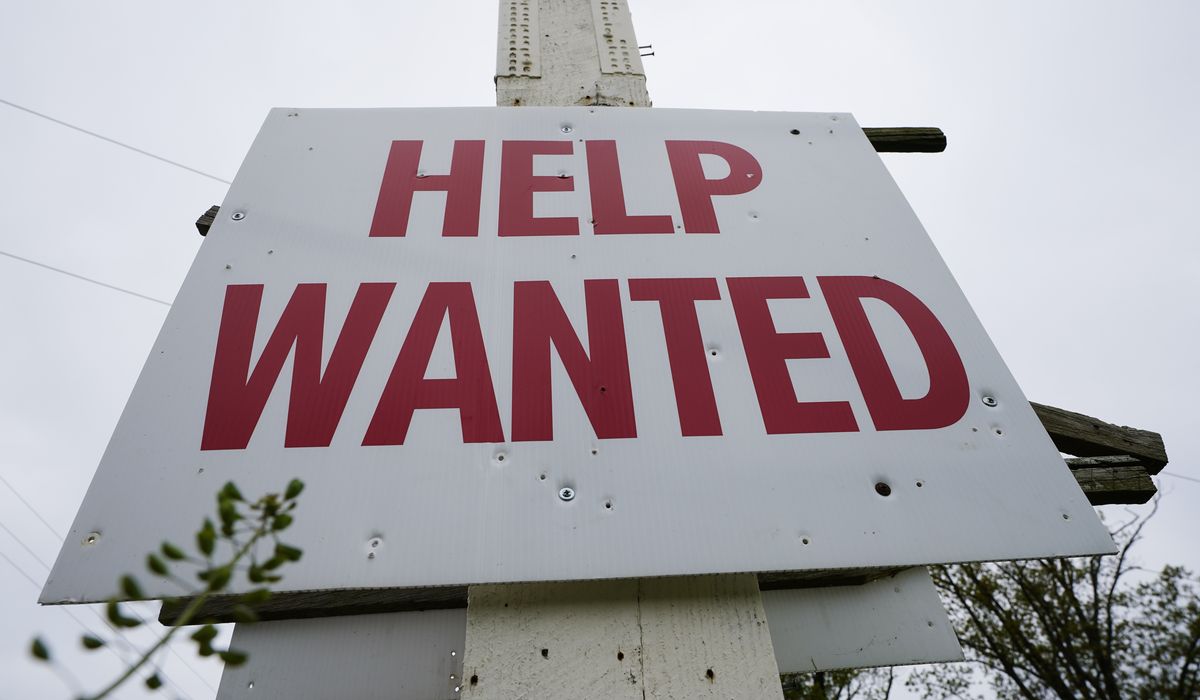


Black Americans make up nearly 90% of adults who are newly unemployed since April, according to the latest data from the Bureau of Labor Statistics.
The federal agency reported last week that 267,000 out of 300,000 workers who lost their jobs in recent months were Black, reversing a trend that generally moved in the other direction the past two years.
In a statement emailed Thursday to The Washington Times, the BLS Division of Labor Force Statistics said it was too early to draw any conclusions from the data.
“While the unemployment rate for Blacks appears to have ticked up in the past few months, data for additional months are needed to determine if this is part of a longer-term trend,” the statement said. “As always, we’ll be looking closely at labor market performance in the coming months to determine if there are changes in trends, both overall and for major demographic groups, such as Blacks.”
Some labor market experts reached for comment said the report confirms that widespread layoffs in the tech and service industries have hit Blacks harder than other workers this year.
There has been a “George Floyd effect” of corporations quietly purging affirmative action hires made in response to social justice protests, said Eugene Dilan, a California-based business consultant specializing in equity, inclusion and diversity.
He said Mr. Floyd’s 2020 murder in Minneapolis police custody prompted corporations to make public commitments to affirmative action hiring that have rapidly evaporated amid fears of a looming recession.
“While millions of Black Americans were hired, the efforts often stopped there,” Mr. Dilan said in an email. “There was a failure to create a welcoming environment or allocate resources for the in-depth work required to bring about systemic change. Consequently, when the economy became unstable, these individuals were seen as expendable, resulting in them being the first to lose their jobs.”
The summer exodus of Black workers comes as big tech companies have terminated diversity, equity and inclusion positions responsible for hiring racially diverse employees.
Apple, Google and Facebook parent company Meta have laid off tens of thousands of workers this year.
Tech layoffs have fueled a 33% turnover rate for DEI employees compared with 21% for non-DEI positions, a study from Revelio Labs found this year.
Most recently, Microsoft announced Monday that it will cut 276 employees in its home state of Washington, adding to 10,000 layoffs announced in January.
According to the BLS report, Blacks faced a 6% unemployment rate in June, about twice that of the 3.1% rate for Whites. Blacks traditionally have had double the unemployment rate of Whites in BLS data.
Hispanic unemployment rose to 4.6% last month, with Asians at 3.2%.
The unemployment rate hit 3.6% nationally last month — about the same as before the COVID-19 pandemic in 2019 and early 2020.
Black unemployment had fallen from 5.7% in February to a record low of 4.7% in April, according to BLS figures. It has since risen for two straight months to be slightly higher than the 5.9% mark it hit in June 2022.
“The so-called diversity, equity and inclusion policies are just more woke virtue signaling that have done little to actually help communities of color gain traction in the labor market,” said Andrew Crapuchettes, CEO of Idaho-based recruitment agency RedBalloon, summarizing the numbers.
Over the decades since BLS started tracking the Black-White unemployment gap in 1972, there has been little significant change in the overall trend line.
The latest BLS numbers suggest Black unemployment has returned to its historical struggles after briefly looking as though it might close the gap, according to some economists.
“More Americans are leaving the labor force, but black Americans have a 64% higher exit rate,” said Michael Austin, a former economic advisor to two Kansas governors and a member of Project 21, a network of Black conservatives. “We might be heading toward a slower economy, and the effects on African-Americans could be a telling sign of things to come.”
April marked the smallest gap between Black and White unemployment on record and the lowest national unemployment rate — 3.4% — since 1969.
Meanwhile, inflation has slowed in recent months. Prices rose at an annual rate of 3.8% in May, about the same as in early 2021.
Recent reports suggest those improvements have not helped Black workers in the labor market, however.
According to a study that Gallup and Amazon published Wednesday, Black adults are 33% underrepresented in top-rated careers, measured by the proportion of Blacks working in them to those in the general workforce. Hispanic adults are 43% underrepresented.
Black and Hispanic Americans have seen no easing of racism, poor job advancement prospects, unsafe neighborhoods with rising crime rates and limited access to “quality education,” said Mr. Dilan, the diversity consultant.
“In order to survive, many have decided to start their own businesses and many have resorted to the gig economy, taking positions with Uber and similar roles that lack benefits and opportunities for advancement,” he said. “Black and Brown people have also historically supported each other, but it’s important to note that our communities are currently facing difficulties from various angles.”
Historically, Black Americans have made up most workers in low-wage jobs, employment experts say.
With illegal immigration on the rise, Black adults are competing with undocumented workers for those jobs in a cooling labor market, said Eric Ruark, director of research at NumbersUSA, a Virginia-based advocacy group favoring restrictions on legal and illegal immigration.
“Black Americans are more likely to be in occupations where they compete with illegal immigrants,” Mr. Ruark said in an email.
• Sean Salai can be reached at ssalai@washingtontimes.com.
